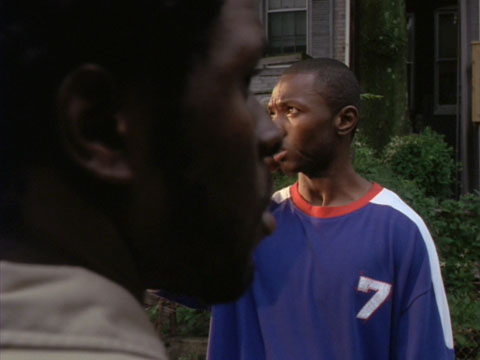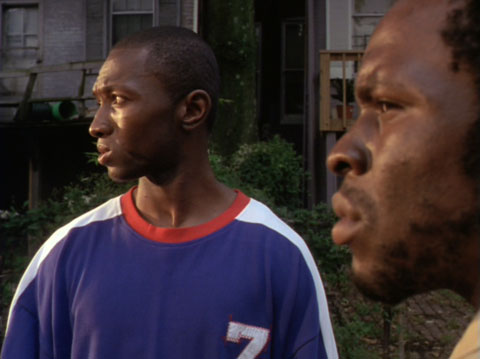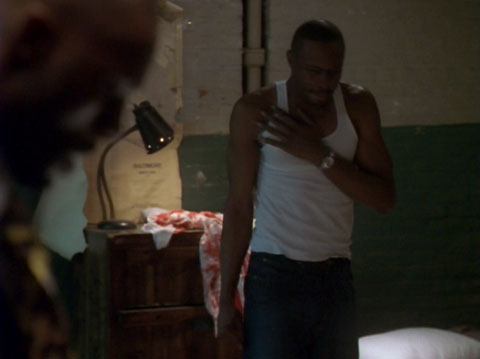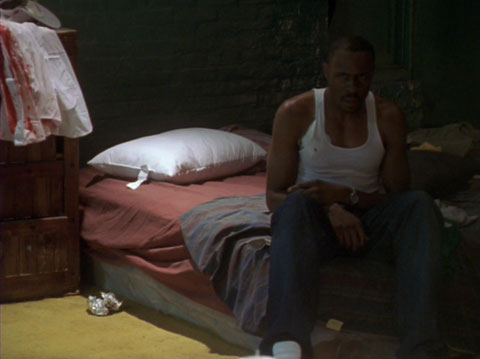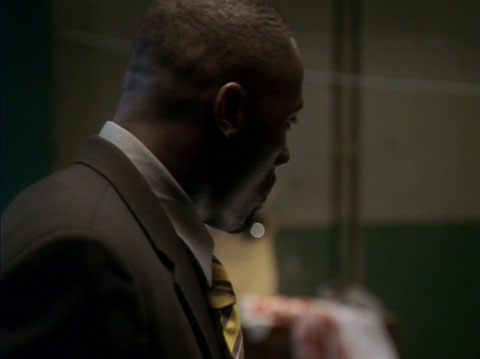“But to tell the truth, I no longer watch many films, only those by friends or curiosities that an American acquaintance tapes for me on TCM. . . . I feed my hunger for fiction with what is by far the most accomplished source: those terrific American TV series like Deadwood, Firefly, or The Wire . . . There is a knowledge in them, a sense of story and economy, of ellipses, a science of framing and of cutting, a dramaturgy, and an acting style that has no equal anywhere, and certainly not in Hollywood.”
— Chris Marker
Written by Richard Price (Clockers, Freedomland) and directed by Agnieszka Holland (Angry Harvest, Europa Europa), episode 33 of The Wire, “Moral Midgetry,” features two single-take shots that epitomize the radically economical storytelling that characterizes the series. In the first, a new player in the drug wars, Marlo, is held in a medium shot for a few seconds before one of his musclemen, Chris, appears in the extreme foreground. The camera dollies slowly to the right as Chris paces through the frame and turns, pausing silently while Marlo finishes a phone call and issues orders. At this point in the series, Chris doesn’t even have a name, but we now know he’s Marlo’s shadow. The shot is as formally rigorous and affecting as anything in Pedro Costa’s films.
The second example is impressive for entirely different reasons. Here, we’re watching two central characters — men whose history and personalities were established in the opening episodes of the series. An inevitable showdown has finally come, but rather than allow the scene to explode in a fit of exposition, Holland and Director of Photography Eagle Egilsson catch the aftermath in a long, silent take. The camera only catches Stringer Bell and Avon Barksdale together in the frame for a second, as if by accident. Instead, it follows Avon around the room, his body tense and tired. Then, without cutting, the camera pans up on an eyeline match to Stringer. To fully explain the complexity of this moment would require pages and pages of plot synapsis, but I would honestly call it epic — on the scale of a great novel, and flush with ambiguity, tragedy, and hard-earned drama.
